Danielle Sellers’ Bone Key Elegies is a collection of poems published by Main Street Rag Publishing as part of its Editor’s Select Poetry Series. (You can check out my previous 32 Poems Magazine interview with the poet, here, and one of her poems in the 81st Virtual Poetry Circle). Unlike eulogies that praise someone upon his or her death, elegies are a lament for the dead and are often mournful. In this vein, Sellers excels at creating memorable elegies for her sister, a lost family, and happier memories. However, many of these poems will deceive the reader at first, beginning with scenery or a happy moment in time before turning melancholy. Sellers’ style echoes the turn of line expected in haiku or the final couplet of Shakespearean sonnets.
However, some poems, like “The Bridge Fishers” (page 16), are less full of despair than the other beginning poems in the collection and more mischievous, especially as the narrator drives away in a boat beneath a bridge where fisherman are waiting for their first bite from the fish, only to have the engine of the boat scare the fish away. Sellers’ poems are filled with surprises: some shocking, some full of dark humor, and some violent. In “Welcome to my Father’s Showroom” (page 26), readers are given a quirky picture of the showroom as a sort of maze through which the father navigates or hides to peer at customers secretly, but in the final lines, ” . . . He watches them. In case one should step out of/line, a shotgun leans against the metal filing cabinet. On its shaft,/his hand-print is outlined in dust.” (please check out some sample poems).
What’s surprising is that each poem has its own depth of despair and melancholy, like an elegy is supposed to have, but the depth of that sorrow generally corresponds well to the connection the narrator has with each subject. Losing a father can be very devastating to a daughter, but is it more or less devastating to a daughter who has seen her father cheat on her mother or leave her mother? Losing a sister at a very young age can be tragic and life changing, but is it more or less life changing than if you were to lose a sister after having lived half your life with her by your side? These are just some of the emotional questions tackled by Sellers’ poems, and Bone Key Elegies is an excellent examination of the various levels of melancholy and despair that individuals can experience at different intervals in their lives. It is clear that the poem about the death of a sister sets the tone for the entire collection, a tone that deepens and thins out in a see-saw of emotion.
Through rich language and vivid imagery from the Florida Keys, Sellers’ illustrates not only the brackish nature of woe, but also the desperate fight against that emotion — leaving readers breathless.
This is my 7th book for the Fearless Poetry Exploration Reading Challenge.
This is my 13th book for the 2011 New Authors Reading Challenge.
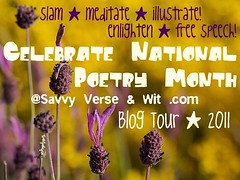
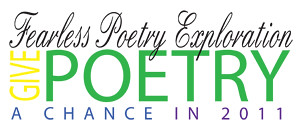
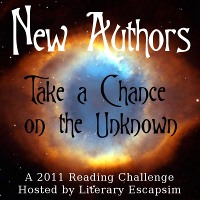
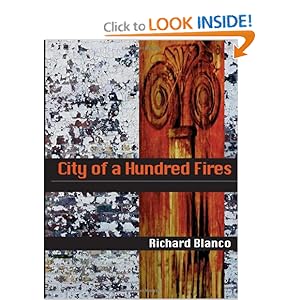



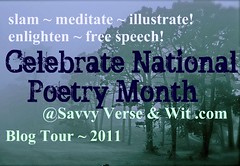

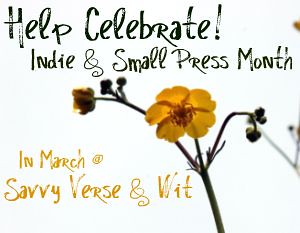
b.jpg)






